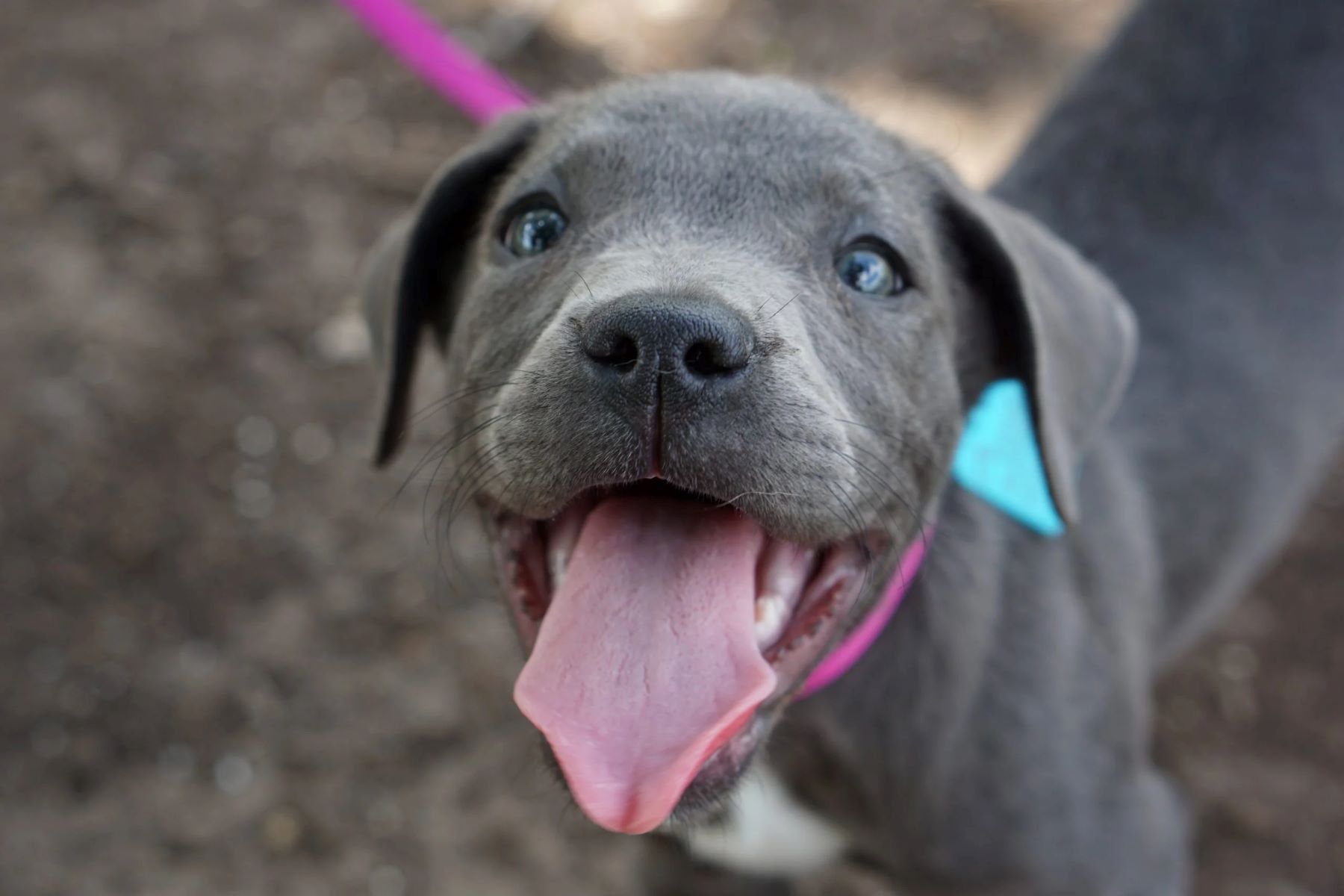Home>Health and Wellness>Alarming Signs: Puppy Refuses Food, Water, And Playtime!


Health and Wellness
Alarming Signs: Puppy Refuses Food, Water, And Playtime!
Published: February 10, 2024
Ensure your puppy's health and wellness by recognizing alarming signs such as refusal of food, water, and playtime. Seek immediate veterinary care for your furry friend.
(Many of the links in this article redirect to a specific reviewed product. Your purchase of these products through affiliate links helps to generate commission for Regretless.com, at no extra cost. Learn more)
Introduction
Welcoming a new puppy into your home is an exciting and heartwarming experience. The joy of having a furry companion to play with, cuddle, and care for is unparalleled. However, as a responsible pet parent, it's essential to be attuned to your puppy's needs and behaviors, especially when it comes to their eating, drinking, and activity levels.
When a puppy refuses food, water, and playtime, it can be a cause for concern and may indicate an underlying issue that requires attention. As a loving pet owner, witnessing your puppy's disinterest in these fundamental aspects of their well-being can be distressing. It's natural to feel worried and unsure about what steps to take next.
In this article, we will delve into the potential reasons why a puppy might exhibit this refusal, the signs to look out for, and when it's crucial to seek veterinary care. Understanding these aspects will empower you to provide the best possible care for your furry friend and ensure their health and happiness.
So, let's embark on this enlightening journey to uncover the alarming signs of a puppy refusing food, water, and playtime, and gain insights into how to address these concerns effectively. Let's ensure that your puppy receives the attention and care they need to thrive and continue being the bundle of joy that has captured your heart.
Signs of Refusal
When a puppy refuses food, water, and playtime, it can be distressing for pet owners. These behaviors are significant indicators of a puppy's overall well-being and can offer valuable insights into their health. Understanding the signs of refusal is crucial for identifying potential issues and taking appropriate action to address them.
Refusal of Food
A puppy's refusal to eat can be a concerning sign, especially if it persists over an extended period. This refusal may manifest as a lack of interest in their regular meals, leaving food untouched, or even turning away from offered treats. Additionally, sudden changes in appetite or a significant decrease in food consumption can also signal a problem. Observing the frequency and duration of food refusal is essential for gauging the severity of the issue.
Rejection of Water
Just like food, water is vital for a puppy's well-being. An aversion to drinking water or a noticeable decrease in water intake can be worrisome. Dehydration can set in quickly, particularly in young puppies, making it crucial to monitor their water consumption. Signs of water refusal may include ignoring the water bowl, reluctance to drink, or visibly reduced trips to the water source.
Lack of Interest in Playtime
Puppies are known for their playful and energetic nature. A sudden disinterest in playtime or a reluctance to engage in activities they previously enjoyed could be a red flag. This change in behavior may indicate discomfort, pain, or underlying health issues that require attention. Monitoring your puppy's enthusiasm for play and their overall energy levels can provide valuable insights into their well-being.
Behavioral Changes
In addition to the specific refusal of food, water, and playtime, it's essential to observe any accompanying behavioral changes. These may include lethargy, withdrawal, irritability, or unusual restlessness. Such alterations in behavior can offer clues about your puppy's physical and emotional state, aiding in the identification of potential health concerns.
Recognizing these signs of refusal is the first step in addressing any underlying issues that may be affecting your puppy's well-being. By being attentive to these indicators and understanding their implications, you can take proactive measures to ensure the health and happiness of your beloved furry companion.
Potential Causes
A puppy's refusal of food, water, and playtime can stem from various potential causes, ranging from minor issues to more serious health concerns. Understanding these underlying factors is essential for identifying the root of the problem and taking appropriate measures to address it effectively.
-
Health Issues:
- Digestive Problems: Gastrointestinal issues such as stomach upset, indigestion, or constipation can lead to a puppy's reluctance to eat or drink. These issues may be triggered by dietary changes, food intolerances, or ingestion of non-food items.
- Dental Pain: Dental problems, such as teething discomfort or dental issues, can make chewing and eating uncomfortable for puppies, resulting in food refusal.
- Illness or Infection: Various illnesses, infections, or underlying health conditions can cause a decrease in appetite and energy levels, leading to a puppy's disinterest in food, water, and playtime.
-
Stress and Anxiety:
- Environmental Changes: Moving to a new home, changes in routine, or exposure to unfamiliar environments can induce stress and anxiety in puppies, impacting their eating and activity habits.
- Separation Anxiety: Puppies may exhibit refusal behaviors when separated from their owners or primary caregivers, experiencing stress and anxiety in their absence.
-
Behavioral Factors:
- Picky Eating Habits: Some puppies may develop selective eating habits, showing preferences for certain types of food while rejecting others.
- Boredom: Lack of mental stimulation and engaging activities can lead to a decline in interest in playtime and overall lethargy.
-
External Influences:
- Temperature: Extreme temperatures, whether too hot or too cold, can affect a puppy's appetite and willingness to engage in physical activities.
- Seasonal Changes: Seasonal variations, such as decreased daylight hours or changes in weather, can impact a puppy's behavior and energy levels.
-
Social Dynamics:
- Interaction with Other Pets: Interactions with other pets in the household, including competition for resources or social dynamics, can influence a puppy's eating and play behaviors.
Identifying the potential causes behind a puppy's refusal of food, water, and playtime is crucial for devising an appropriate plan of action. By recognizing these factors, pet owners can take proactive steps to address the underlying issues and ensure the well-being of their beloved furry companions. If these refusal behaviors persist or are accompanied by concerning symptoms, seeking veterinary care is paramount to address any underlying health issues and provide the necessary support for the puppy's overall health and happiness.
When to Seek Veterinary Care
Recognizing the signs of refusal in a puppy, particularly when it comes to food, water, and playtime, is a critical aspect of responsible pet ownership. While some instances of refusal may be transient and easily resolved, there are circumstances where seeking veterinary care becomes imperative to address potential health issues and ensure the well-being of the puppy.
Persistent or Worsening Refusal Behaviors
If a puppy's refusal of food, water, and playtime persists over an extended period or shows signs of worsening, it should prompt immediate attention. Prolonged lack of appetite, decreased water intake, and disinterest in activities that are typically enjoyable for the puppy can signify an underlying problem that requires professional assessment.
Read more: How To Make Carbonated Water
Significant Changes in Behavior or Physical Condition
Observing notable changes in a puppy's behavior or physical condition alongside refusal behaviors is cause for concern. Symptoms such as lethargy, vomiting, diarrhea, excessive drooling, or noticeable discomfort warrant veterinary evaluation. These changes may indicate underlying health issues that need to be addressed promptly.
Dehydration and Weight Loss
Dehydration can set in rapidly, particularly in young puppies, and can result from decreased water intake. If dehydration symptoms, such as dry gums, lethargy, or sunken eyes, are observed, immediate veterinary care is necessary. Additionally, significant weight loss due to prolonged food refusal requires professional assessment to determine the cause and provide appropriate intervention.
Ingestion of Harmful Substances or Foreign Objects
If there is a possibility that the puppy has ingested potentially harmful substances, toxic foods, or foreign objects, immediate veterinary care is crucial. Ingestion of toxic substances or foreign bodies can lead to serious health complications and necessitates prompt intervention by a veterinarian.
Preexisting Health Conditions or Vulnerabilities
Puppies with preexisting health conditions or vulnerabilities may be more susceptible to the effects of refusal behaviors. If a puppy has a known medical history or is immunocompromised, any signs of refusal should prompt veterinary evaluation to ensure that their health status is not compromised.
Trust Your Instincts
As a pet owner, trusting your instincts and intuition is vital. If you sense that something is amiss or if your puppy's refusal behaviors are causing you significant concern, it is entirely appropriate to seek veterinary care. Your proactive approach in addressing potential health issues can make a significant difference in your puppy's well-being.
In summary, seeking veterinary care for a puppy's refusal of food, water, and playtime is warranted when the behaviors persist, are accompanied by concerning symptoms, or raise significant apprehension. Timely intervention by a veterinarian can help identify and address any underlying health issues, providing the necessary support to ensure the health and happiness of your beloved furry companion.
Conclusion
In the journey of pet ownership, being attuned to a puppy's needs and behaviors is paramount. The refusal of food, water, and playtime by a puppy can evoke feelings of worry and uncertainty in pet owners. However, understanding the potential causes behind these refusal behaviors and recognizing the signs that necessitate veterinary care empowers pet owners to provide the best possible support for their furry companions.
By delving into the alarming signs of a puppy refusing food, water, and playtime, we have gained valuable insights into the factors that can impact a puppy's well-being. From health issues and stress-related factors to external influences and social dynamics, the potential causes behind refusal behaviors are diverse and multifaceted. Recognizing these factors equips pet owners with the knowledge to take proactive measures and seek appropriate care when needed.
It is essential for pet owners to remain vigilant and observe any persistent or worsening refusal behaviors, significant changes in a puppy's behavior or physical condition, and signs of dehydration or weight loss. Trusting one's instincts and seeking veterinary care when concerned is a pivotal aspect of responsible pet ownership. The well-being of a beloved puppy rests on the proactive and attentive approach of their caregivers.
In the face of refusal behaviors, pet owners play a crucial role in advocating for their puppy's health and happiness. Whether it involves addressing minor issues, seeking professional guidance, or providing the necessary support, the dedication and care shown by pet owners are instrumental in ensuring that their furry companions thrive.
As we conclude this enlightening exploration, it is evident that the refusal of food, water, and playtime by a puppy is not merely a behavioral concern but a significant indicator of their overall well-being. By embracing a proactive and compassionate approach, pet owners can navigate these challenges with resilience and ensure that their puppies receive the care and attention they deserve.
In the heartwarming journey of pet companionship, the bond between a pet and their owner is a testament to the unwavering dedication and love that enriches both lives. By understanding the signs, recognizing the potential causes, and knowing when to seek veterinary care, pet owners can continue nurturing this bond and providing a nurturing environment where their puppies can flourish and thrive.












